The Future of Artificial Intelligence in Biotechnology: Unlocking Breakthrough Innovations and Emerging Trends
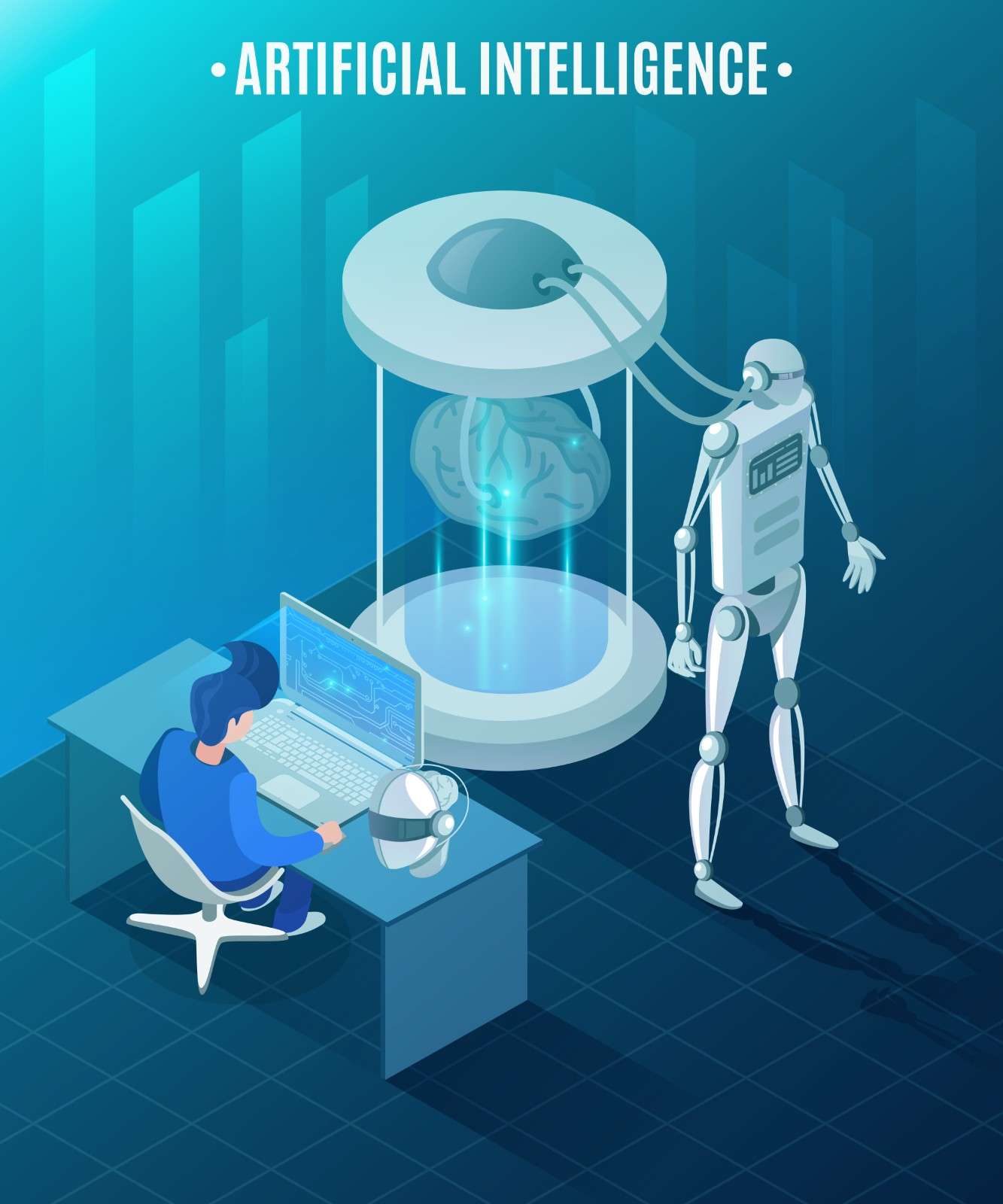
The convergence of artificial intelligence and biotechnology is not merely an incremental technological shift; it is a fundamental re-engineering of the entire life science industry. Where traditional biological research often relied on slow, costly, and resource-intensive "wet lab" experimentation, the integration of modern AI, machine learning (ML), and deep learning (DL) has ushered in an era of in-silico prediction, optimization, and automation. This synergistic relationship—often referred to as AI biotech—is collapsing timelines, increasing the probability of success, and ultimately leading to a more efficient path to life-saving therapies and sustainable biological solutions.
The global market for AI in biotechnology and pharmaceuticals is skyrocketing, validating the industry’s shift from skepticism to wholesale adoption. To truly compete in this new landscape, organizations must move beyond pilot projects and integrate AI for biotechnology as a core operational and R&D strategy. This long-form guide provides an authoritative look into the most critical emerging trends and future innovations that define the role of artificial intelligence in biotechnology's next decade.
AI-Driven Drug Discovery: From Hypothesis to Healing in Hyper-Speed
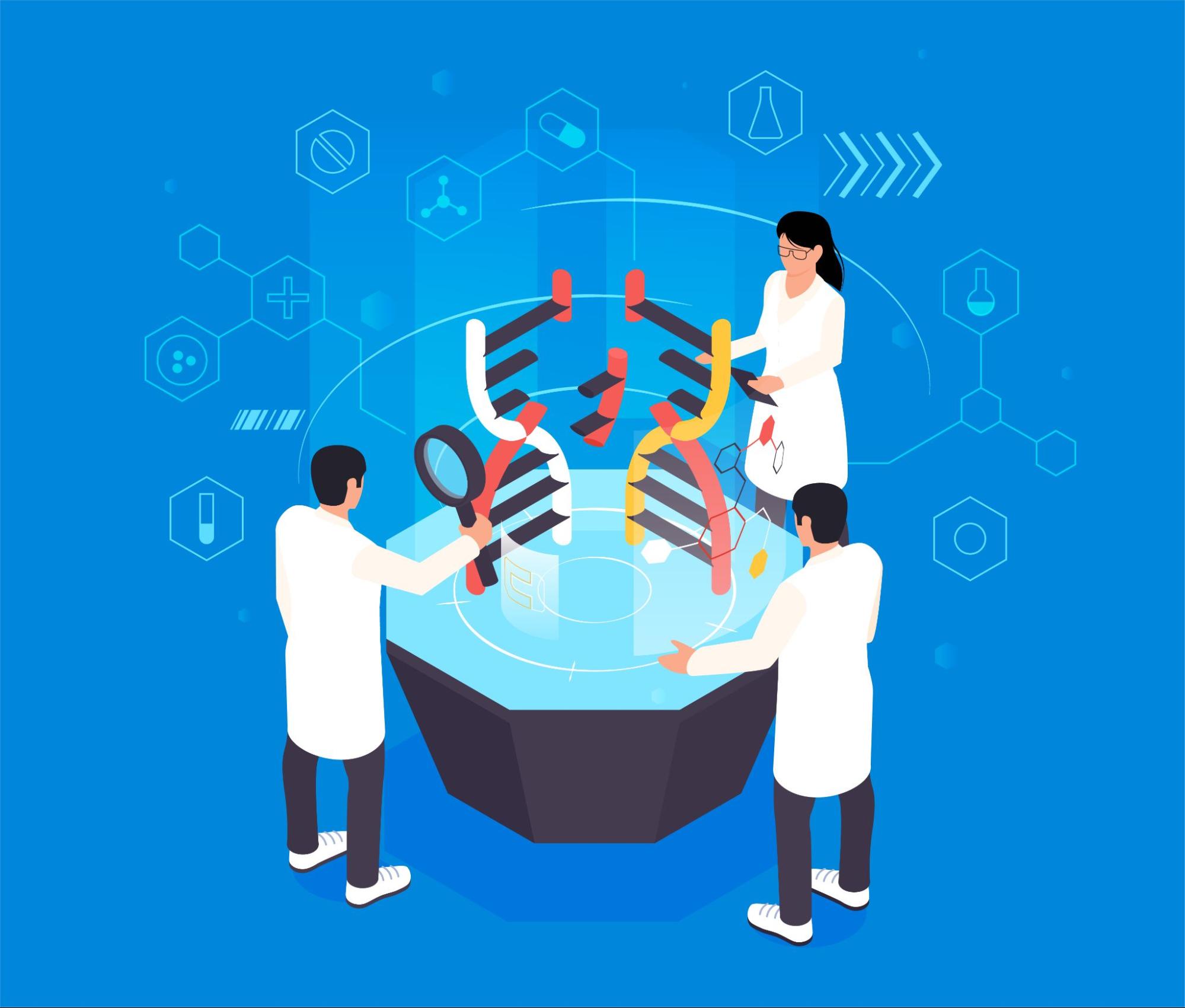
The most immediate and widely adopted application of AI in biotechnology remains drug discovery and development. This process has historically been characterized by high failure rates—with less than 10% of candidates making it from preclinical development to market—and a decade-plus timeline. AI is directly attacking these bottlenecks, creating a paradigm shift in how novel therapeutics are conceived and validated.
Redefining the Preclinical Pipeline with Deep Learning
The core challenge in early-stage discovery is navigating an astronomical search space of possible molecules and biological targets. Deep learning models, a key component of artificial intelligence in biotechnology, are proving essential in turning this insurmountable problem into a manageable one.
- Target Identification and Validation: AI algorithms analyze massive, multi-omic datasets (genomics, proteomics, metabolomics, transcriptomics) to identify previously unappreciated biological targets. Companies like Insilico Medicine and Recursion Pharmaceuticals are building proprietary "Maps of Biology" to find the most promising, disease-relevant targets with unprecedented speed.
- De Novo Molecule Design: Generative AI (Gen AI)—specifically Variational Autoencoders (VAEs) and Generative Adversarial Networks (GANs)—can design novel, synthesizable molecules from scratch. Instead of screening millions of existing compounds, these models create optimized candidates that possess desired properties like high efficacy, low toxicity, and optimal drug-likeness. Atomwise’s AtomNet platform, for instance, uses structure-based deep learning to predict drug-target interactions with high accuracy, a prime use of artificial intelligence in biotechnology.
- Protein Folding and Engineering: DeepMind's AlphaFold is perhaps the most famous example of AI in structural biology, accurately predicting the 3D structure of proteins from their amino acid sequence. This capability is now being leveraged by top AI biotech companies to accelerate protein engineering for therapeutic antibodies, enzymes, and vaccines, streamlining the creation of next-generation biologics.
Synthetic Biology and Biomanufacturing: Engineering Life with AI
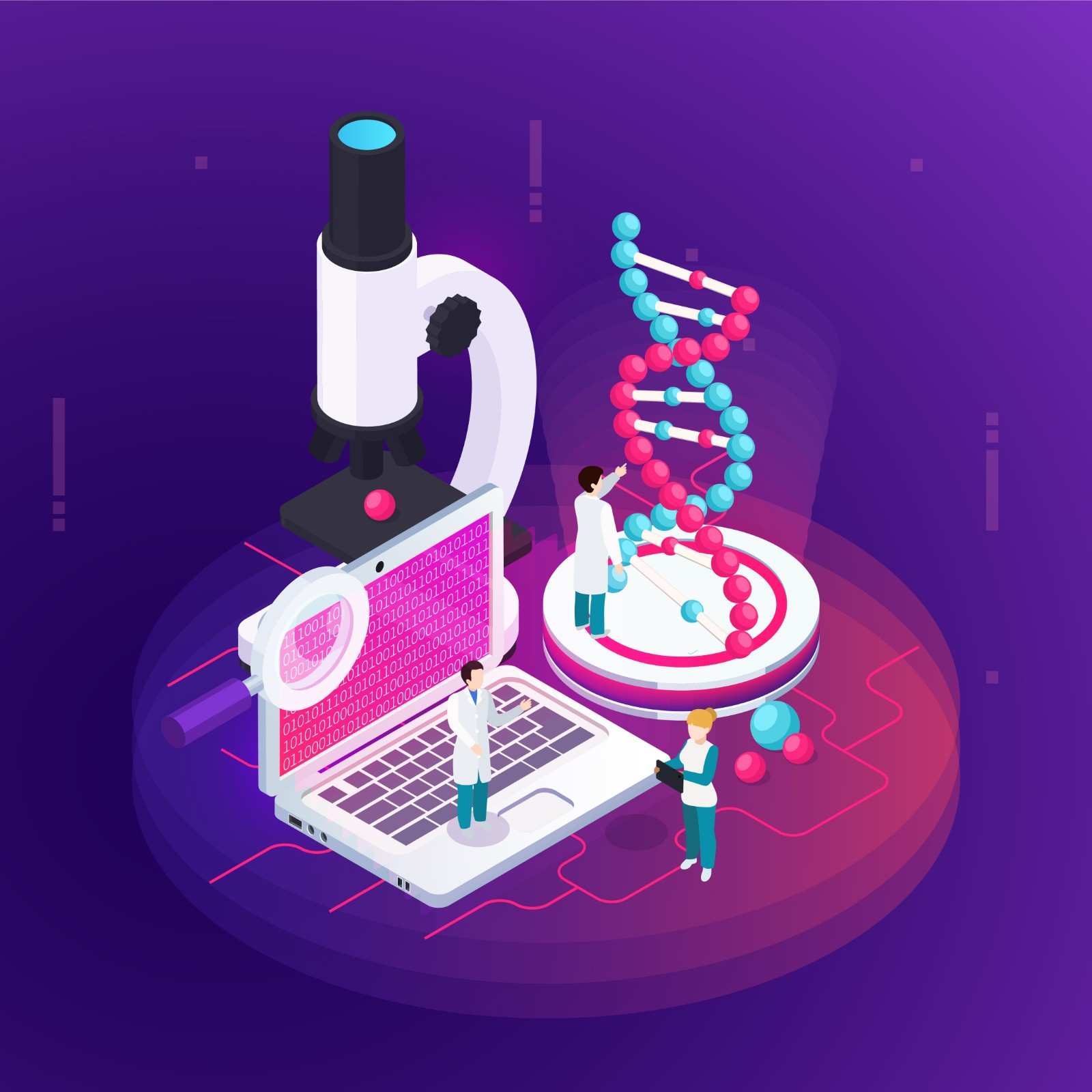
The fusion of biotech and AI extends far beyond traditional drug molecules into the realm of synthetic biology, where researchers engineer organisms (like yeast or microbes) to produce sustainable chemicals, materials, or even pharmaceuticals. AI is the operating system that scales this discipline from lab bench to industrial scale.
The Automated DBTL Cycle
Synthetic biology operates on a "Design-Build-Test-Learn" (DBTL) cycle. AI dramatically accelerates the "Design" and "Learn" phases:
- Design: AI models predict the optimal DNA sequence, gene pathways, and host organism modifications needed to produce a specific compound efficiently.
- Build & Test: AI and ML are integrated with lab automation and robotics to create Self-Driving Laboratories. These robotic systems execute thousands of experiments per day (the "Build" and "Test" phases) with minimal human intervention.
- Learn: AI analyzes the torrent of data generated by the automated system, using those results to instantly refine and suggest the next, better experiment ("Design")—closing the loop and exponentially speeding up the rate of biological discovery.
This seamless integration, championed by pioneers like Ginkgo Bioworks, is critical for sustainable biomanufacturing, enabling the production of everything from alternative proteins to specialized biologics and advanced therapies.
For insights on scaling these cutting-edge R&D operations, consider exploring how smart technologies are integrated into healthcare solutions:
AI in Precision Medicine and Clinical Trials: The Personalized Future
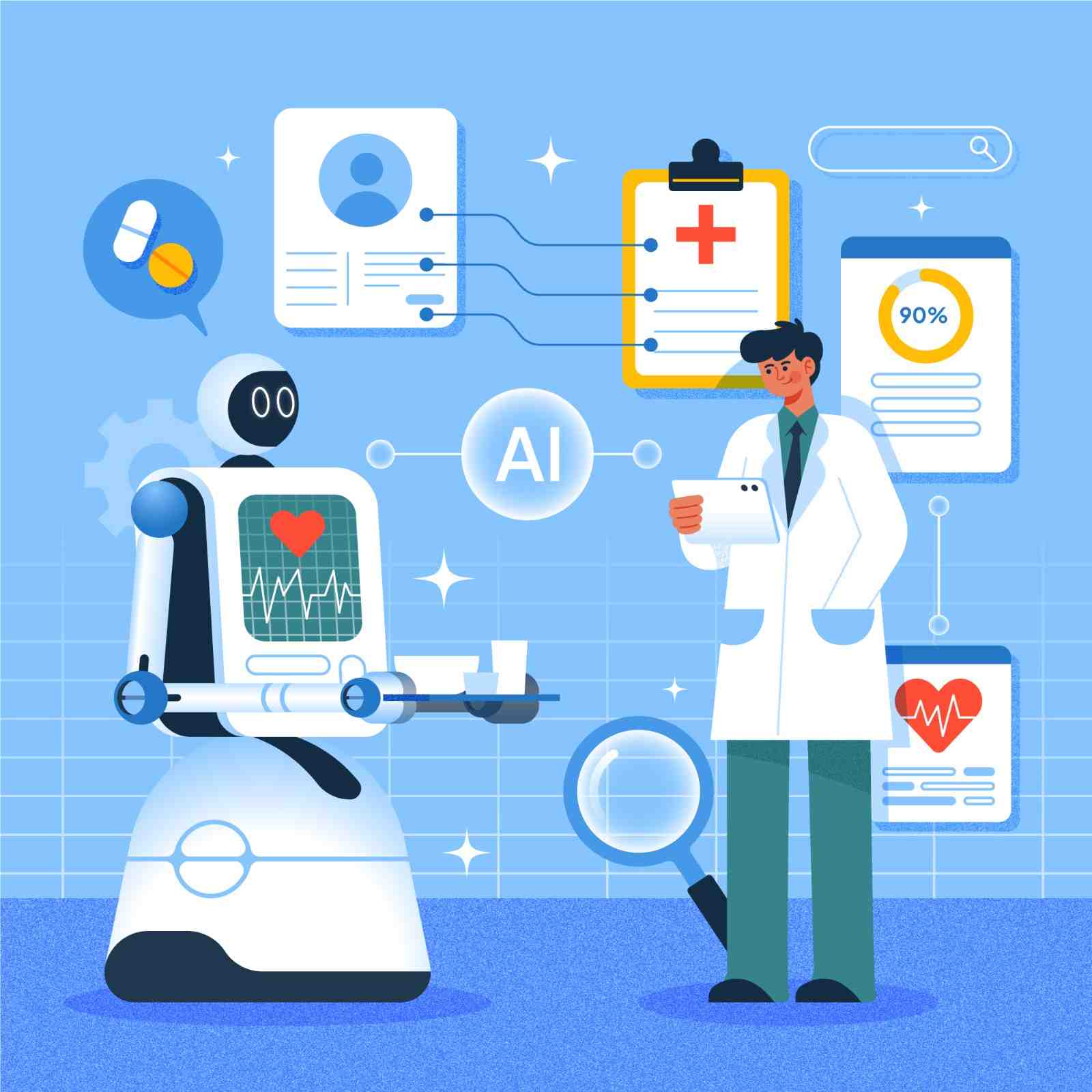
The ultimate goal of AI in medical biotechnology is to move from a one-size-fits-all approach to precision medicine, where treatments are tailored to an individual’s unique biological profile. AI makes this possible by processing the complex interplay of a patient’s genomic, clinical, and lifestyle data.
Accelerating Clinical Development with Predictive Analytics
Clinical trials are the most expensive and time-consuming stage of development. AI streamlines this process through three transformative applications:
- Optimized Patient Recruitment: AI algorithms analyze vast Electronic Health Records (EHRs) and genomic data to identify ideal candidates who meet highly specific inclusion criteria and are most likely to respond to the therapy. This drastically reduces the time and cost associated with enrollment, a crucial application of artificial intelligence in biotechnology.
- Predictive Trial Design: Machine Learning (ML) models can simulate different trial scenarios, predict potential outcomes, forecast patient dropout rates, and suggest optimal dosing regimens. This predictive power reduces the risk of costly late-stage failures.
- Digital Twin Models: An emerging innovation is the creation of Digital Twins—virtual patient replicas built from a person’s multi-omics, physiological, and clinical data. These models allow researchers to "test" drug effects virtually before administering them, refining personalized dosing and predicting adverse events for enhanced safety monitoring.
The shift toward data-driven patient wellness and clinical management is central to modern healthcare. For more information on developing secure platforms for this data, see our expertise in software development
Key Innovations and Leading AI Biotech Companies
The industry's rapid evolution is best illustrated by the pioneering work of leading biotech companies who are commercializing these futuristic technologies.
| Company | Core AI Innovation | Area of Focus |
|---|---|---|
| Recursion Pharmaceuticals | High-throughput automation and ML to map cell morphology and decode biology (Map of Biology). | Drug Discovery, Rare Diseases |
| BenevolentAI | Proprietary Knowledge Graph and ML to identify novel therapeutic targets and predict compounds. | Therapeutic Target Identification |
| Insilico Medicine | End-to-end Generative AI platform for de novo target and drug design (e.g., first AI-designed drug to enter clinical trials). | Full-Stack Drug Discovery |
| Ginkgo Bioworks | AI-driven "Design-Build-Test-Learn" cycle and automated foundry for organism engineering. | Synthetic Biology, Biomanufacturing |
| PathAI | AI-powered digital pathology and image analysis for faster, more accurate disease diagnosis and biomarker identification. | Diagnostics, Clinical Trial Biomarkers |
These top AI biotech companies are setting the standard for the entire industry, proving the commercial viability and transformative potential of deep integration between AI and biological R&D.
Navigating the Ethical and Regulatory Landscape
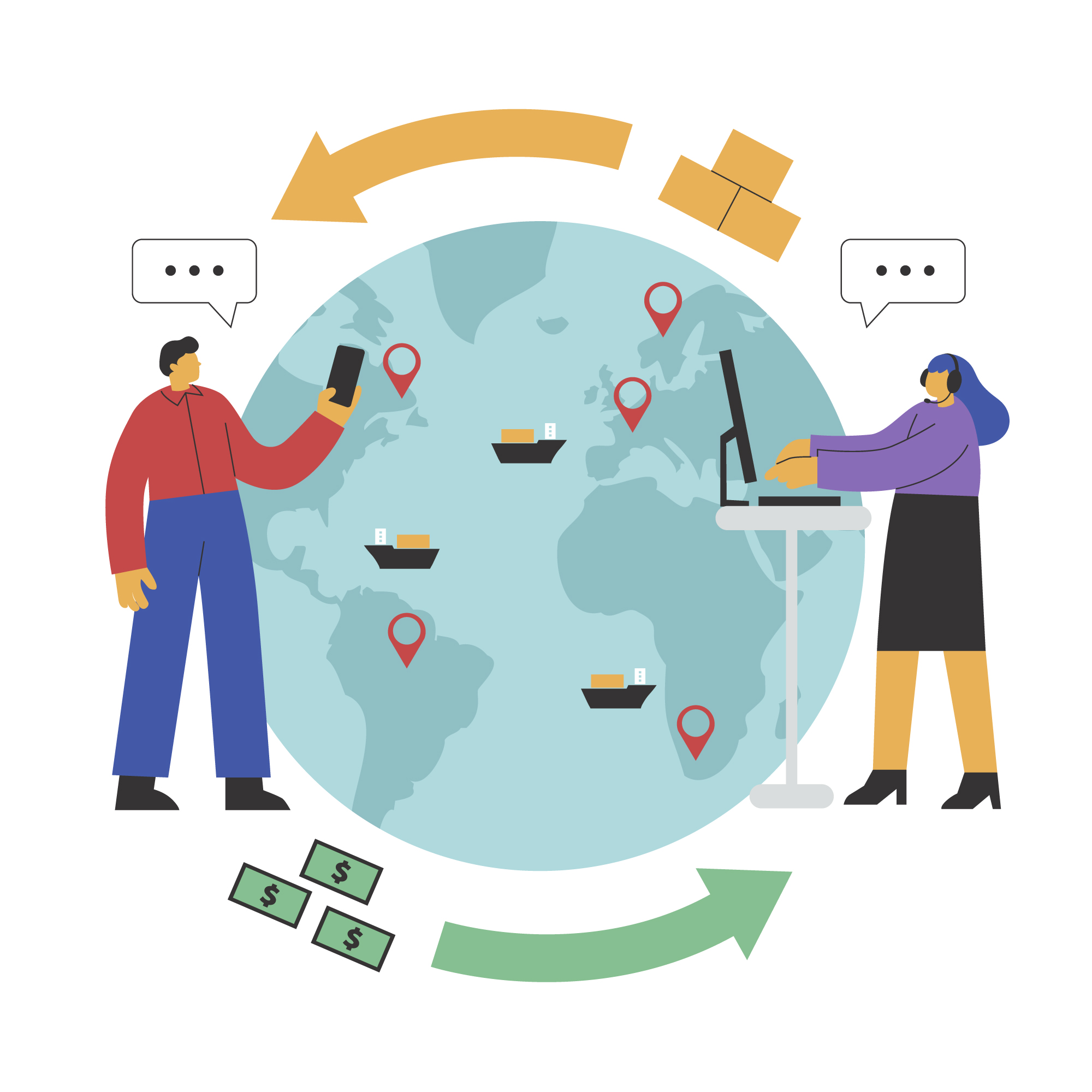
As the power of AI and biotechnology grows, so too do the ethical and regulatory challenges. The capability to engineer biology, combined with the opaque nature of some AI models, necessitates proactive, thoughtful governance. The future of the field depends on establishing trust and ensuring equitable, responsible use.
Addressing the 'Black Box' Problem and Bias
One of the main challenges is the "black box" nature of complex deep learning models, where even the engineers cannot fully explain why a model made a specific prediction. In critical areas like drug toxicity prediction or patient diagnosis, this lack of transparency—or explainability—is a significant barrier for regulatory approval and physician trust.
- Explainable AI (XAI): Future research must focus on developing XAI methods that provide human-interpretable reasons for a model's output, ensuring that scientific accountability remains paramount.
- Algorithmic Bias: Since AI models learn from the data they are fed, historical underrepresentation of diverse populations in clinical trials or genomic databases can lead to models with inherent biases. This could result in treatments that are less effective or simply unavailable for certain demographic groups. Addressing this requires diverse, high-quality training datasets and continuous monitoring for equity. (Source: Ethical Considerations Emerge from Artificial Intelligence (AI) in Biotechnology - PMC)
Data integrity, security, and ethical governance are vital for any AI-driven healthcare initiative. Learn more about secure data practices here:
The Horizon: Quantum Computing and Advanced AI
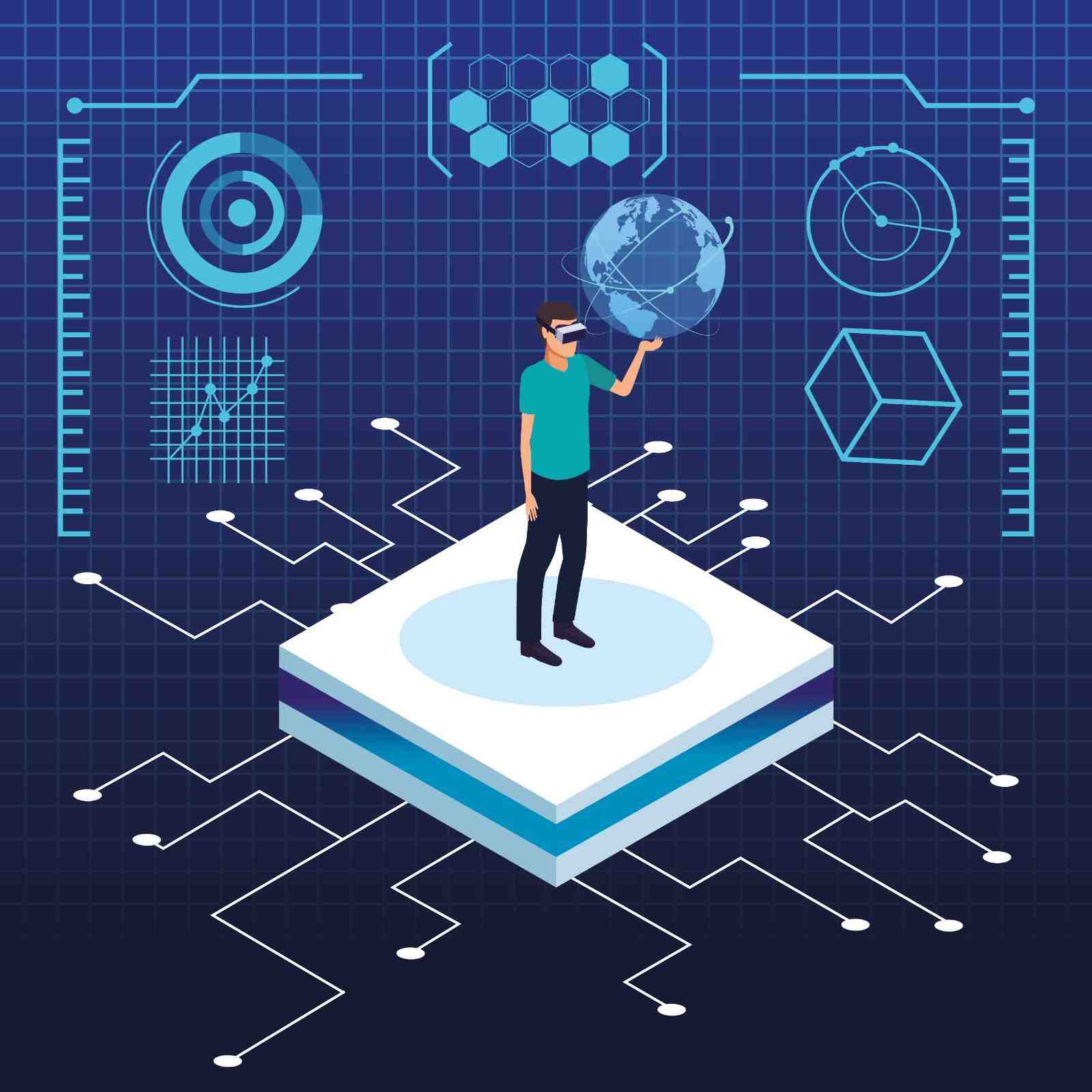
The ultimate future of artificial intelligence in biotechnology lies in technologies that are only now beginning to emerge:
- Quantum Computing: Quantum mechanics can simulate molecular interactions with a complexity impossible for even today’s supercomputers. The integration of quantum algorithms with classical AI models promises to unlock a new level of precision in molecular and protein design, potentially solving complex folding problems almost instantaneously.
- Decentralized and Federated Learning: To overcome data privacy concerns—especially when dealing with patient genetic data—federated learning allows AI models to be trained across multiple decentralized clinical or research sites without the data ever leaving the local server. This maximizes the learning power of collective data while preserving individual privacy, a critical enabler for the future of AI in medical biotechnology. (Source: AI in Clinical Trials: How It Will Shape the Future - Medrio)
- Digital Bioreactors and In-Silico Testing: The future envisions complete virtual environments—digital twins of biological systems, like a bioreactor or even a whole human organ—where all R&D and manufacturing optimization can be done entirely in silico, before a single lab experiment is run. This will drastically reduce costs and time in biomanufacturing.
The comprehensive integration of AI-enabled robotics with advanced data science will eventually lead to the fully autonomous Bio-Foundry, where new biological products—from drugs to sustainable materials—are invented, tested, and scaled by intelligent systems.
Conclusion
The seismic shift generated by artificial intelligence in biotechnology is reshaping global health and industry. From AI-driven drug discovery and the automation of synthetic biology to the personalization of medicine via digital twin models, AI is delivering on the long-held promise of faster, cheaper, and more effective biopharma R&D. To be a leader in this domain requires more than just purchasing software; it demands a strategic, top-down transformation toward a data-first culture, supported by expertise in bioinformatics, machine learning, and advanced engineering. The companies that embrace this future, while responsibly addressing the ethical challenges of data privacy and bias, are the ones that will define the next generation of global innovation.
The adoption of a strategic, AI-first approach is essential for any biotechnology or pharmaceutical company looking to outpace its competition and deliver life-changing innovations. To discuss how to integrate cutting-edge AI and data science into your R&D and biomanufacturing pipelines—from initial strategy to full-scale deployment—we invite you to take the next step.
Next Step:
Contact us for a consultation to explore bespoke AI-driven solutions and strategic partnerships that can accelerate your research, optimize your clinical trials, and secure your place at the forefront of the AI biotech revolution.
